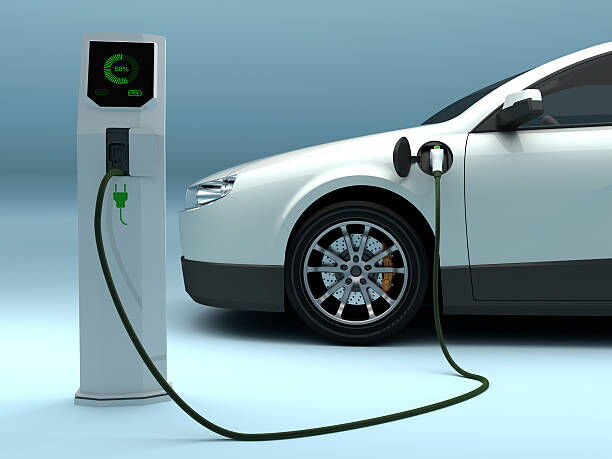With the growing adoption of electric vehicles (EVs), businesses are increasingly investing in commercial EV charging stations. However, the costs of installation and maintenance can be significant. Understanding these costs and exploring strategies to reduce them can help businesses optimize their investments.

| Cost Range | $300 - $1,000 per unit |
| Speed | 1kW–1.8kW (3 to 5 Miles Per Hour) |
Level 1 chargers are basic, using a standard 120-volt plug and offering slower charging speeds. They are inexpensive and suitable for home use but generally inadequate for high-traffic commercial environments due to their slow rate of charge.
| Cost Range | $1,000 - $5,000+ per unit |
| Speed | 3.3kW–22kW (12 to 80 Miles Per Hour) |
Level 2 chargers operate at 240 volts and are more efficient than Level 1 chargers. They are commonly used in public charging stations and are appropriate for businesses with frequent EV use. However, they may still be too slow for some high-demand commercial settings.
| Cost Range | $20,000 - $100,000+ per unit |
| Speed | 50kW–350kW (3 to 20 Miles Per Minutes) |
Level 3 DC Fast Charging stations provide cutting-edge rapid charging technology, delivering over 100 miles of range in just 30 minutes. While they are more expensive, their speed makes them perfect for high-demand commercial environments where reducing downtime is essential.
The cost of installing an EV charging station varies based on location. Factors such as site accessibility, proximity to existing electrical infrastructure, and installation complexity affect the final cost. Remote or difficult sites may incur higher costs due to additional electrical work and site preparation.
Modifying existing electrical facilities to accommodate EV chargers can be expensive. Upgrades to electrical panels, new circuits, and additional load support can add to the overall cost. Businesses should factor these potential expenses into their planning to avoid unexpected costs.
Factors Influencing the Cost of Installing EV Charging Stations
When budgeting for an EV charging infrastructure project, it’s important to understand the factors that contribute to the overall cost. Here’s a breakdown of what to consider:
Type of Charging Stations
The cost of an EV charging station varies widely based on the type:
Level 1 Chargers: The most affordable option, operating on standard 120-volt outlets. These slow chargers take up to 20 hours to fully charge a vehicle, costing between $300 and $1,500 for the equipment.
Level 2 Chargers: Common in business settings, these chargers operate on 240 volts and charge most EVs in 4-8 hours. Equipment costs range from $500 to $7,000, depending on features and brand.
DC Fast Chargers: The fastest and most expensive option, providing an 80% charge in just 20-30 minutes. Costs start at $10,000 per unit and can exceed $50,000 for high-capacity models.
Number of Charging Units
Installing multiple units can lower the average cost per charger due to economies of scale. However, the overall expense will rise, especially if substantial infrastructure upgrades are necessary.
Electrical Infrastructure Upgrades
If your existing electrical system is inadequate, you may need to invest in upgrades such as:
Transformer installation
Electrical panel upgrades
New power lines These costs can range from a few thousand to tens of thousands of dollars, depending on the extent of the work needed.
Permits and Compliance
Most locations require permits for the installation of EV charging stations, with fees ranging from $500 to $5,000. Compliance with ADA (Americans with Disabilities Act) for accessible parking may also increase costs.
Site Preparation
Site preparation costs vary depending on the condition of your parking lot. Expenses for trenching, repaving, or installing protective bollards around the chargers can add $2,000 to $10,000 to your project.
By considering these factors, you can better estimate the total cost of your EV charging station installation.
Choosing cost-effective equipment is a straightforward way to reduce expenses. Evaluate your needs and select equipment that balances cost and functionality. Level 2 chargers often provide a good compromise between cost and performance. Opt for chargers with integrated features, like remote monitoring, to reduce maintenance and operational costs.
Selecting an optimal location for your charging stations can significantly impact costs. Choose sites close to existing electrical infrastructure to minimize installation and modification expenses. Conduct a thorough site assessment to identify potential challenges. Working with a specialized consultant or contractor can also help optimize site selection and reduce costs.
Leverage government programs and incentives to offset installation costs. Many local, state, and federal programs offer subsidies, grants, or tax credits for businesses investing in EV infrastructure. Research available incentives to find out which ones your business may qualify for, potentially reducing the upfront costs of purchasing and installing equipment.
Reducing the costs associated with commercial EV charging stations requires strategic planning and decision-making. By selecting cost-effective equipment, optimizing site selection, and utilizing available subsidies and grants, businesses can lower their investment and ensure their charging infrastructure meets their needs. As EV demand grows, making informed choices about charging stations will be crucial for businesses staying competitive in the evolving transportation landscape.
